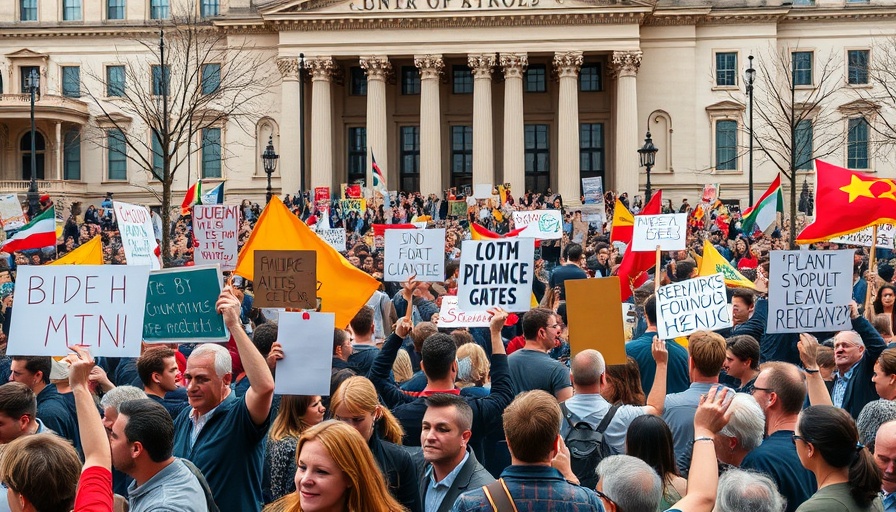
Protest Outlook: FCTA Workers Demand Action
Tensions escalated in Abuja as members of the Joint Union Action Committee and other trade unions marched in protest outside the Federal Capital Territory Administration (FCTA). This demonstration, which unfolded on a Monday morning, sought to bring urgent attention to longstanding grievances regarding unpaid wages and poor working conditions. Workers barricaded the entrance to the FCTA secretariat, demanding the immediate payment of outstanding wage awards, timely promotions, access to training, and improved work tools.
In 'FCTA Workers Protest in Abuja Over Unpaid Wages and Poor Conditions,' the discussions reveal the pressing issues that have led to this significant labor action.
Conditions Ignite Anger Toward FCT Leadership
The protesters directed much of their ire toward the Minister of the Federal Capital Territory, Yung Wiki, accusing him of exacerbating their already dire circumstances. Their calls for action reflect a broader dissatisfaction with the current leadership, which many workers believe has shown a blatant disregard for their needs. Workers state that their demands have largely been ignored, amplifying the urgency for immediate government response as they contend with low morale and financial struggles.
Historical Context: A Look at Unpaid Wages Issue
Since 2023, allegations of unpaid wages have simmered among FCTA staff, leading to repeated demonstrations. This recurrence of protests highlights a troubling pattern in the treatment of government workers in Nigeria, where labor disputes have regularly been met with indifference or inadequate action from authorities. Such tells of the overall health of public service employment in Nigeria—a sector that many view as critical for national development.
Future Predictions: The Road Ahead for Protests
As a bold stance, these protests may set a precedent for workers across the country to voice their grievances more openly. If the FCTA does not address these concerns promptly, rising tensions could lead to prolonged disruptions not just in Abuja but potentially ripple through other sectors and regions, illuminating the fragility of public worker sentiments across Nigeria. The success or failure of this protest may become a litmus test for the government’s approach to public service management.
Actionable Insights: What Should Workers Consider?
Understanding how to navigate these contentious waters is crucial for FCTA workers. Staying organized, documenting grievances, and engaging in collective bargaining efforts can bolster their positions. Additionally, exploiting media outlets to amplify their concerns could prove beneficial in rallying public support. It's clear that without unified action and an informed strategy, achieving their demands might be a more difficult road ahead.
Common Misconceptions: Addressing Overlooked Issues
A common misconception surrounding government employees in Nigeria is that they receive automatic support from their unions. In reality, many union leaders are often met with bureaucratic barriers that hinder their ability to advocate effectively on behalf of their constituents. This protest serves to remind the public that while unions offer a platform for advocacy, they are not a guaranteed remedy for systemic issues within public administration.
Relevance to Current Events: A Broader Narrative
The protests at FCTA are part of a larger dialogue regarding labor rights within the African continent. With ongoing discussions about improving working conditions and increasing wages, the outcomes of protests like those in Abuja could either pave the way for reform or highlight the challenges still to be addressed by local and national governments. Observers must recognize these local disputes as magnified reflections of a continent grappling with modernization and governance.
In ‘FCTA Workers Protest in Abuja Over Unpaid Wages and Poor Conditions,’ we witnessed a critical moment highlighting the plight of public service employees. The ongoing struggle not only underscores the immediate need for reforms but also prompts an examination of the systemic dynamics influencing labor relations across Nigeria.
 Add Row
Add Row  Add
Add 


Write A Comment